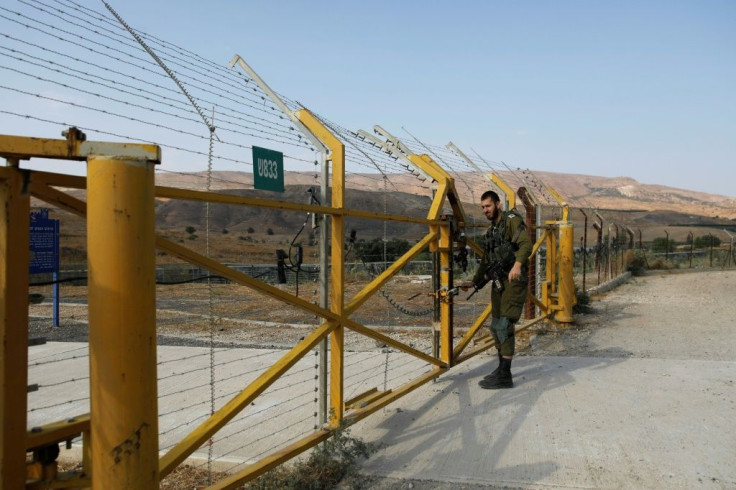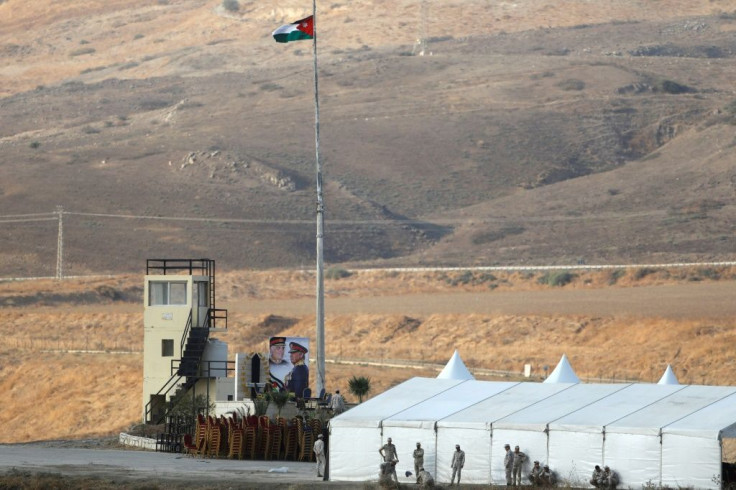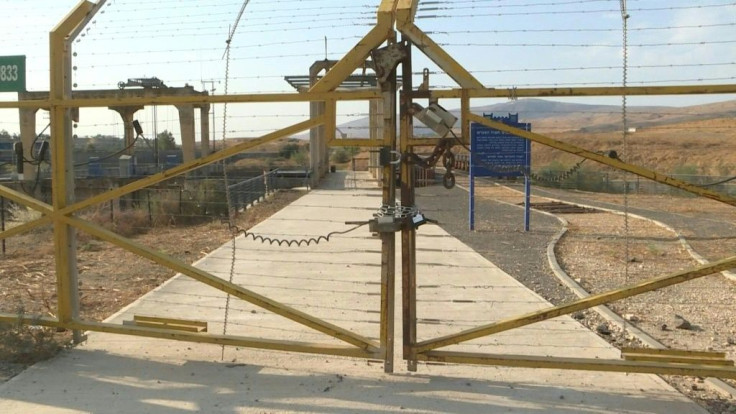Israeli Farmers Shut Out As Jordan Enclave Deal Expires

Israeli farmers were shut out from two Jordanian border enclaves Sunday after a 25-year-old deal allowing them to work the land there expired amid souring ties with Amman.
Israelis who long grew watermelon, wheat and other crops there braced for financial losses after Jordan declined to renew a clause on the parcels that was part of their 1994 peace agreement.
For a quarter-century, Jordan had allowed the Israeli farmers access to the territories of Baqura -- also dubbed "the Island of Peace" -- in the north as well as Ghumar in the Negev desert south.
But a year ago, Jordan's King Abdullah said his country had notified Israel that it wants the two parcels back.
And on Sunday, in a speech opening parliament, he declared Jordan would reclaim "full sovereignty over every inch of those lands" and announced "the expiration of the Peace Treaty annexes" referring to the two territories.
"Israel regrets Jordan's decision to terminate the annexes," Israel's foreign ministry said in an English-language statement later in the day.
Baqura -- known in Hebrew as Naharayim, an area that also extends into Israel -- lies on a spit of land where the Jordan and Yarmuk rivers meet, in a region of sun-baked brown and yellow hills.
On Sunday, two yellow gates leading to the Jordanian checkpoint were locked with chains. Local officials said Israeli soldiers had shuttered them around 5:00 pm (1500 GMT) the previous day.
On a hilltop on the other side, a Jordanian flag flew above two tents and military vehicles were patrolling the site where a ceremony was expected on Monday.

The Naharayim territory has seen its share of tragedy. On the Israeli side there is a memorial garden for seven schoolgirls killed in a 1997 massacre by a Jordanian soldier.
Then-King Hussein later went on condolence visits to the families.
Local Israeli official Shay Hadar, 47, said around 150 people would visit the enclave of Naharayim on a normal weekend with Jordanian permission.
He said the visitors would see the remains of a hydroelectric power plant and train station and learn about the history of the Island of Peace.
Tour money will be lost and business at a guest house at the Ashdot Yaakov Ihud kibbutz is expected to suffer.
"Of course it's a big loss," said Adva Algarisi, director of tourism for the kibbutz, who explained that visitors would often combine trips to the Island of Peace with other sites in the area.

"It's close to the (Sea of Galilee), it's close to other Christian places, holy places," she said, noting what had long been the site's unique appeal of demonstrating "how to live in peace with our neighbours".
Residents of the area hope to eventually regain some access to the lands, or compensation from the Israeli government.
"What's most important is the fields, the land," said Ami Kabri, spokesman for the Jordan Valley regional council.
A statement by Jordan's foreign ministry said that Israeli farmers would be allowed to harvest vegetables from both enclaves -- but only once, during the upcoming harvest season, and after obtaining a Jordan visa.
The second enclave, Ghumar, deep in the Negev desert south of the Dead Sea, is known in Hebrew as Tzofar.
The lands were privately owned by Israeli entities for decades, but the 1994 deal saw the kingdom retain sovereignty there.
Since the heady days of Israel's second peace treaty with an Arab state -- after Egypt -- relations with Amman have been strained.
Opinion polls have repeatedly found that the peace treaty with Israel is overwhelmingly opposed by Jordanians, more than half of whom are of Palestinian origin.
The simmering tensions have been punctuated by bouts of violence.
In 2017, an Israeli embassy security guard in Amman killed two Jordanians.
Three years earlier, an Israeli soldier at a border crossing killed a Jordanian judge he deemed a threat.
mjs-jjm/dwo/fz
© Copyright AFP 2024. All rights reserved.




















